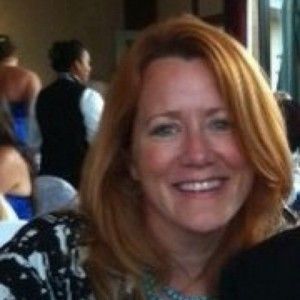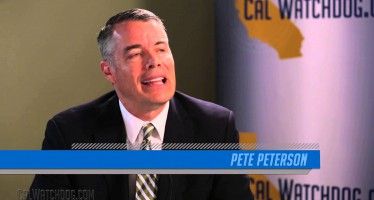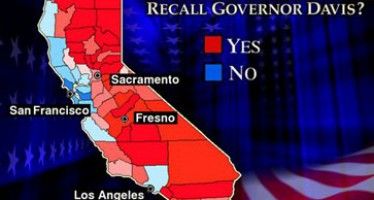Shawnda Westly sparks CA Democratic Party victories
 Editor’s Note: This is Part Two of a two-part series. Part One is here.
Editor’s Note: This is Part Two of a two-part series. Part One is here.
April 23, 2013
By John Hrabe
In addition to her victorious campaign strategies in 2012, California Democrat Party officials recognize Democratic Party Executive Director Shawnda Westly’s critical role in the state operation. “She gets it done,” said John Hanna, the co-chairman of the California Democratic Party’s Resolutions Committee, who also praised her ability to build coalitions. “Westly has the ability to see all sides of an issue and bring various groups within the Democratic Party together.”
Her ability to bring together interest groups is a necessity in Democratic politics. “[S]ometime in the 1970s, the Democratic Party became basically an ‘interests’ party,” wrote Neal Gabler, a senior fellow at the USC Annenberg Norman Lear Center, in the Los Angeles Times in 2010. “It stopped pressing government action as an overriding binding principle and began instead to appeal to individual interest groups: African Americans, Hispanics, women, labor, gays, youth and even Blue Dogs [moderate Democrats]. Anyone who hopes to make headway in the nominating process has to find a way to appeal to many if not all of them.”
Westly has built that credibility with Democratic interest groups through years in the campaign trenches. Before starting her own consulting firm in 2005, she worked for six years as the political director of the California Professional Firefighters. Her consulting clients have included the Consumer Attorneys of California, No on 75 (the 2005 initiative banning mandatory union dues for political purposes), and numerous union-sponsored independent expenditures.
“When you are in a fight to protect consumers, families and working people, there is no one better to have at your side than Shawnda Westly,” said Insurance Commissioner Dave Jones, who worked with Westly in 2006 on the campaign against the Sacramento Arena tax. “Her extraordinary talent, energy, and dedication were a big part of California Democrats’ success in 2012.”
Westly, unlike many professional political consultants, doesn’t often take public credit for her work. She declined to comment for this story, a pattern reflected in the minimal number of press reports referencing her name. Nonetheless, Democratic staff members describe her as the kind of person that treats everyone the same, no matter their rank or importance.
She also expects everyone to pitch in. When you attend a California Democrat Party Convention, you won’t “see a lot of people standing around on the sidelines,” a frustration Westly expressed as a 19-year-old volunteer at an Orange County beach clean-up.
Proms
No one at the 2013 Grant and Lincoln High School proms, held at the same time and place as this month’s Democratic Convention, would think twice about buying a single ticket, or a pair of tickets, for two people of the same sex. In the 1980s, that wasn’t the case for Edison High School in conservative Huntington Beach.
“When I tried to buy prom tickets, I learned the school was only selling tickets to couples, one boy and one girl,” Westly recalled of her days as an Orange County honors student and varsity tennis player in a 2012 Los Angeles Times opinion piece she wrote. “When the school administration denied us tickets just because we didn’t have male dates, it didn’t seem right.”
The student senate voted to uphold the school’s ban on singles and same-sex dates. Echoing today’s conservative talking points on gay marriage, the student body president told the Orange County Register that the rights of individuals weren’t being restricted. “We are not denying her the right to go. She is entitled to go with a member of the opposite sex,” the student body president said, according to a 1987 Orange County Register account of the incident.
“It was a stunning lesson for a 16-year-old: If you step even slightly out of line with tradition and acceptable norms, you will be punished,” Westly wrote in 2012. “I saw firsthand that society doesn’t just promote its traditions; it does all it can to enforce them.”
Students circulated petitions to support the ban. Anti-stag posters lined school walls. “My choice to go to the prom without a traditional date made the whole experience memorable for an entirely different set of reasons,” she wrote 25 years later. “It made me suddenly an outcast and a radical, a bomb thrower in a green taffeta dress.”
Ultimately, the bomb thrower won. The school principal reversed the ban because “individual rights are more important than keeping tradition.”
Westly added, “Besides, if some traditions weren’t broken, women would still be in home economics instead of the Senate.”
Women in politics
After Senators Barbara Boxer and Dianne Feinstein, the list of high-profile California Democrat women is relatively short. There’s Attorney General Kamala Harris, Board of Equalization Member Betty Yee and Assembly Majority Leader Toni Atkins. Women in politics, even progressive politics, continue to face an uphill fight for recognition.
Just ask Molly Munger, whose Proposition 38 tax increase lost big last November after the good-old-boys’ Democratic establishment, led by Gov. Jerry Brown and party Chairman John Burton, lobbied against Prop. 38 in favor of their own tax-increase initiative, Proposition 30, which passed. Also passing was Proposition 39, by her wealthy contributor counterpart Tom Steyer.
Women, according to some feminist authors, don’t always recognize the achievements of other women. Case in point, House Minority Leader Pelosi’s Saturday address to the 2013 California Democrat Party Convention. Intentional or not, in her 13-minute speech to convention delegates that repeatedly praised Burton, Pelosi omitted any reference to Westly, who no doubt deserves some credit for the party’s remarkable successes in 2012.
“In the past, women in politics have rarely gotten the respect that their quality of work deserves,” said Kathy Tavoularis, a Republican consultant who served as the executive director of California’s delegation to the Republican National Convention. “But the future shows great signs of this changing — politics is catching up with the business world. Both major parties in California are now run by accomplished professional women.”
Other prominent women in politics describe Westly as “one of the biggest champions of women in Sacramento.”
“Politics can be a cut-throat industry, especially for women who don’t have the traditional avenues of entry and advancement enjoyed by their male counterparts,” said Jaime Huff, the political affairs manager for Southern California Edison. “Shawnda Westly understands this and has become one of the biggest champions of women in Sacramento.”
Huff added, “Her sincerity to the success of women is not lip service — she actively seeks to promote, encourage and mentor women in politics daily.”
Brownley was the only speaker at Democrats’ “Red-to-Blue” luncheon that thanked Westly for her role in the November victories. The first Democrat to represent Ventura County in 70 years, Brownley attributed credit to the party’s detail-oriented executive director.
Related Articles
VIDEO: Pete Peterson — Empowering entrepreneurs to transform California
You can’t register your business online in California and the state has a long history of punishing business owners and
Why was 2003 recall so unique? Joe Mathews misses key point
Joe Mathews has written an interesting column about the 10th anniversary of the recall of Gov. Gray Davis. assignment online
Recall Gov. Jerry Brown!
John Seiler: I’ve had enough. Four and a half months of Gov. Jerry Brown, Part Deux, is four and a




